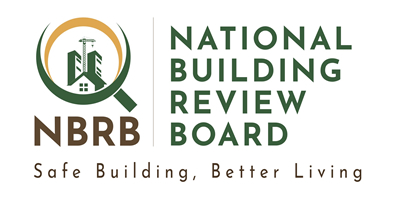There have been numerous concerns over the building fees paid by a developer for building and occupation permits and for inspection of a building operation. Some developers have ended up paying less or more than the stipulated fees.
Let’s start with the building permit fees; Under section 34(1,2) of the Building Control Act, 2013 a person shall not carry out a building operation without a valid building permit issued by a building committee and any contravention attracts a contravenes a fine not exceeding 1,000,000 or imprisonment not exceeding 2 years or both.
Among the requirements before a building permit is issued is the payment of the building fees provided for under the Building Control (Fees) Regulations, 2020 issued by the Minister of Works and Transport Gen. Edward Katumba Wamala.
How Building Permit fees are determined
These fees are determined in 3 ways: 1, according to square meters, location of the building (City, Municipality, town council and district). 2, classification of the building that is (Class A, B and C).
Class A: Complex structures including public buildings, multi storeyed buildings more than 12 meters high, building complexes (mixture of all) such as schools, hospitals, shopping malls, buildings of high social impact or to be located in sensitive ecosystem among others.
Class B; Residential or commercial buildings with floor area of above 30 square meters and up to 12 meters high, boundary wall built of bricks, concrete or other solid material of permanent nature.
Class C; Minor and temporary buildings with floor area of less than 30 square meters such as single storey buildings of simple structural form.
What is charged
In cities, for Class A buildings, 2200 shillings is charged per square meter of floor area, 1700 in Municipalities,1,300 for town councils and 1,100 in districts.
For Class B buildings 1,700 is required per square meter of floor area in cities,1,300 in municipalities,1,000 in town councils and, 950 in districts.
And for Class C buildings a flat rate of 500,000 is paid in cities,300,000 in municipalities, 200,000 in town councils and 30,000 in districts.
Upon issuance of building permit, the developer shall commence construction with 1 year and complete with in 5 years. However, due to unforeseen circumstances, if a developer is unable to complete the building with the specified time, they can apply to the building committee for an extension. For minor building operations, commencement shall be within 6 months, though an extension another 6 months can be granted.
Inspection Fees.
Inspection fees a paid pre-construction, during and after construction of a building.
Pre-construction fees are captured together with building permit fees and they are for scrutinizing building plans and inspecting site for due diligence to ensure that the documents submitted are authentic.
During construction, the building committee must inspect the construction to ensure that the developer is complying with the approved plans and regulations. Like building permits, these fees are determined according to square meters, location and classification of the building.
For class A and B in cities, 1000 shilling is paid per square meter as inspection fees, 750 in municipalities, 500 in town councils and 300 in districts. For Class C buildings. These fees are paid annually for the duration of the building permit.
The after-construction inspection fees are captured under occupation permit fees.
Occupation Permit
Under section 44 of the Building Control Act, 2013, upon completion of a building, the owner shall notify the building committee of the practical completion of the building in accordance with the approved plans and regulation and apply for an occupation permit.
The building committee shall with in 14 days examine the building and may if satisfied that the building erected conforms with the approved plans and regulations issue and occupation permit or refuse with reasons in writing to issue the permit, if the building does not comply.
Occupation permit fees are also determined according to square meters, location and classification of the building.
With Class A and B in cities, 1,200 is paid per square meter, 950 in municipalities 700 in town councils and 500 in districts. And for Class C Buildings, a flat rate of 30,000 is charged across the cities, municipalities, town councils and districts.
It is criminal to occupy a building without an occupation permit and is liable on conviction to a fine not exceeding 480,000 shillings. However, the building committee may issue an occupation permit in respect of a partially completed building where it determines that the building is safe and adequate for human habitation. Such a permit shall only be valid for a period not exceeding 2 years and may be renewed upon application to the building committee.
How do you pay.
All application and permit fees shall be paid by way of electronic transfer or direct deposit into the bank account of the relevant local government as
stipulated by Regulation 38 of the Building Control Regulations, 2020.
The application fees are paid on or before the day an application is submitted to the Building Committee while the permit fees are paid before the permit is issued. All these fees are nonrefundable.
Herbert Zziwa, Manager Communications, National Building Review Board (NBRB)

